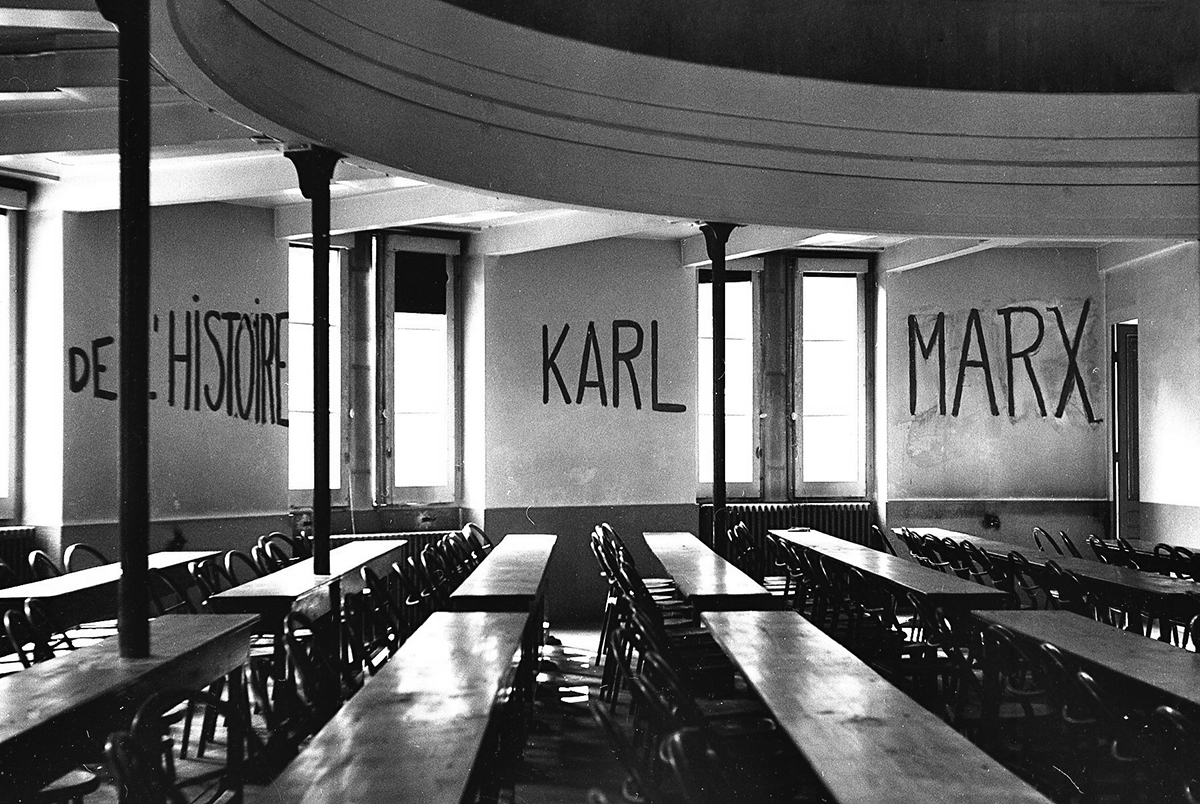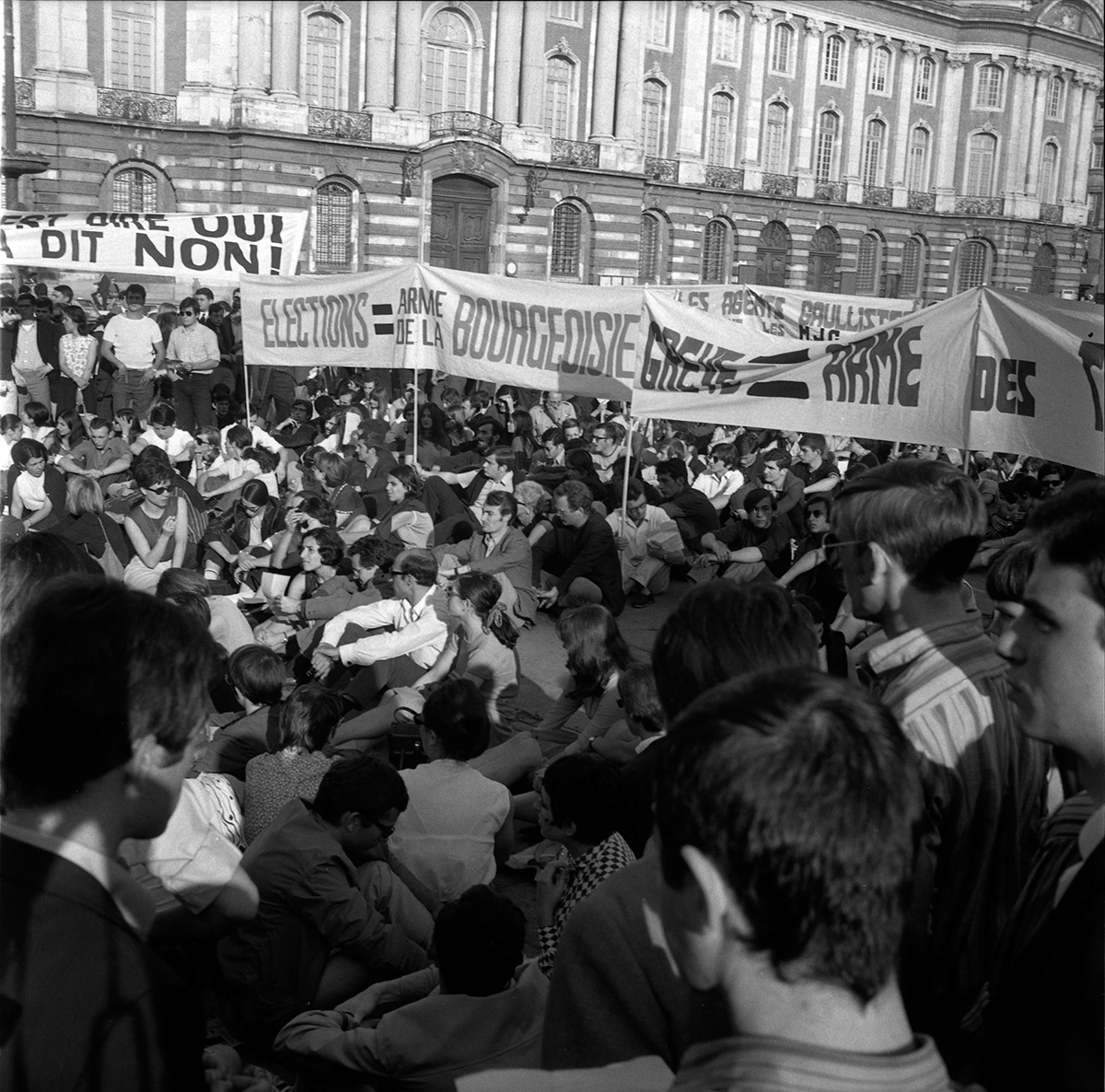Top Stories
The Legacy of the Soixante-Huitards
There was a further fork in the road as soixante-huitards debated moving on from baiting police at protests to participating in terrorism.

The May 1968 protests in Paris marked a turning point in the history of the West, and one that continues to have an impact today. Nearly eleven million students and workers were involved as France ground to a halt. The universities were closed, as was the Renault car factory and much else besides.
The formal aims of the protests ranged from higher wages to student self-government, from a change of administration to the complete overthrow of the state. Less articulate desires were for a society more free, more fun, less focussed on work, and more expressive; simply less bourgeois. While the change in social mores in favour of more freedom was overdue, the attack on bourgeois values later became institutionalised and has done great damage to educational and cultural systems and values in France and across the West.
During that fateful month of May 1968, some of the protests had become violent and the hardcore radicals involved—as well as many members of the government—believed it might end in actual revolution. Even the President, Charles De Gaulle, the fearless leader of the Free French during World War II, became spooked and took temporary refuge in Germany before being coaxed back.
Eventually De Gaulle’s government promised an election and pay rises, the strike ended, and the radicals were left stranded. The election secured an even bigger majority for De Gaulle’s parties, re-legitimising the Fifth Republic in the process. But, while the revolution never came, it ultimately led to a massive change in the universities and the cultural institutions of the West, which were colonised by former activists and ideas produced by what conservative philosopher Sir Roger Scruton later dubbed the “Parisian nonsense machine,” made up of postmodernist writers such as Jacques Derrida, Michel Foucault, and Jacques Lacan.
Those involved in the protests were approvingly dubbed soixante-huitards, forever associated with that epochal year. There were similar protests in cities across the West but only in Prague on the other side of the Iron Curtain was there an uprising of similar import, as the Czechs sought to escape the Stalinist clutches of Moscow.
The failure of the revolutionary moment ultimately validated the slower but surer strategy of the ‘long march through the institutions’ recommended by German activist Rudi Dutschke, who in turn drew on the theories of Italian communist, Antonio Gramsci. In his 1972 pamphlet Counterrevolution and Revolt, Herbert Marcuse, by then a patriarch and prophet of the neo-Marxist Frankfurt School, wrote approvingly:
Rudi Dutschke has proposed the strategy of the long march through the institutions: working against the established institutions while working within them, but not simply by ‘boring from within,’ rather by ‘doing the job,’ learning how to program and read computers, how to teach at all levels of education, how to use the mass media, how to organize production.
The original spark owed little to Marxist dogma. The students marching in the streets were of the Baby Boom generation, born after the war, who had known nothing but economic growth and the benefits of the burgeoning consumer society. In France, as in many Western countries, this generation was looking for a loosening of the restrictive social mores their parents had been happy to embrace after the trauma of World War II.

Thus, the original protest led by prominent soixante-huitard Daniel Cohn-Bendit had been for an end to the prohibition on male students entering the dormitories of the women at the University of Paris in Nanterres. A Marxist and a Christian, Cohn-Bendit believed that sexual oppression was a symbol of political and spiritual oppression. In a stunning reversal, we now have student activists across the West demanding universities regulate and police relations between men and women, a switch noted with disbelief by Camille Paglia and other veterans of ‘60s activism. Cohn-Bendit, meanwhile, is safely ensconced in the EU Parliament, leading a group seeking to convert Europe into a single federated state.
The evidence of revolts on both sides of the Iron Curtain—especially in Czechoslovakia—also meant that Stalinist orthodoxy and the dictates of communist HQ in Moscow no longer carried weight even with the Marxist Left; and so Maoism, Trotskyism, and the cult of Che gained ground. Similarly, Jean-Paul Sartre, a founder of Existentialism, had been merely critical when the Hungarian uprising was crushed in 1956. But when the tanks rolled into Prague in 1968, he finally broke with Moscow. Thereafter, he pinned his hopes on the new student movements, but by then the students had moved on from Satrean angst to postmodern relativism.
There was a further fork in the road as soixante-huitards debated moving on from baiting police at protests to participating in terrorism. To be sure, the violence had been a two-way street: Dutschke was himself shot in the head by an anti-communist would-be assassin and, as historian Niall Ferguson recalled when watching the video of the riots at the Democratic party’s 1968 National Convention:
The most impressive thing is the obvious relish of the riot police and National Guardsmen as they whack the hippies into submission. Everywhere, from Berkeley to Berlin, from Prague to Peking (as we then called it), the story was the same: the plebeian police always sided with authority against the students, their despised social superiors.
But violence was a massive turnoff for the mainstream citizenry in France and across the West. That mood was captured by John Lennon of the Beatles, in the band’s 1968 track, Revolution:
You say you want a revolution,
Well, you know,
We all want to change the world…
But when you talk about destruction,
Don’t you know that you can count me out.
Meanwhile, the most hardcore elements of the student revolt were planning to escalate and formalise a violent stance. Student activists in the US formed the Weather Underground and began a program of bombings. In Germany, the Baader-Meinhof gang practised terrorism with an appalling body count, aided and abetted (as was proved years later) by the East German Stasi.
Sir Roger Scruton was in Paris during the riots and marked them as the moment when he began his journey to conservatism. He was appalled by the activists’ hatred for all things ‘bourgeois,’ and challenged a friend:
What, I asked, do you propose to put in the place of this ‘bourgeoisie’ whom you so despise, and to whom you owe the freedom and prosperity that enable you to play on your toy barricades?
His friend responded with Michel Foucault’s The Order of Things (1966) which became “the bible of the soixante-huitards, the text which seemed to justify every form of transgression, by showing that obedience is merely defeat.” In his 2006 memoir, Gentle Regrets, Scruton recalled that he had been horrified by Foucault’s thesis that:
‘truth’ requires inverted commas, that it changes from epoch to epoch, and is tied to the form of consciousness, the ‘episteme,’ imposed by the class which profits from its propagation … Look everywhere for power, he tells his readers, and you will find it. Where there is power there is oppression. And where there is oppression there is the right to destroy.
Fifty years on at my alma mater, the University of Melbourne, and the most popular elective for undergraduates in Arts is (naturally) called ‘Power,’ enabling students to “grasp the character of social relations” which will “tell us about who is in control and who may benefit from such arrangements.” The postmodern ideology of identity politics—which combines Foucault’s theories of power with Marxist dogma (and generous servings of Edward Said and Kate Millett) to produce a cultural kind of Marxism obsessed with race, class and gender—has colonised the humanities at universities across the West.
Meanwhile, the founders have occupied the commanding heights. Bill Ayers, a co-founder of the Weather Underground who spent time on the run from the FBI, rose to become a Professor of Education in Chicago with advisory roles to government, and was a friend and mentor to then State Senator, Barack Obama. As late as 1973, the German soixante-huitard Joschka Fischer was photographed beating and kicking a policeman, but 30 years later he was representing Germany as Leader of the Greens and Foreign Minister.
Clearly, the true heirs of May ‘68 are those who followed Rudi Dutschke’s advice and took the long march through the institutions. Maybe their revolutionary fervour faded as they enjoyed their tenured positions and generous institutional pension schemes, but the changes in culture and education they wrought have been profound in the 50 years since those heady days of spring ‘68. A better legacy would have been to recapture the spirit of freedom and self-expression that animated so many of those marching in the protests in 1968, whilst leaving behind the neo- Marxist models of change.
That would be a social revolution worth supporting, achievement of which is a task that now falls to the next generation.
This is a slightly edited version of an article which will appear in the May issue of IPA Review.





